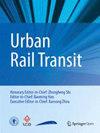记忆与重绘布莱斯拉夫:当代波兰文学中德国与酷儿地形的重新呈现
IF 2.9
4区 工程技术
Q4 TRANSPORTATION
引用次数: 0
摘要
本文关注的是当代波兰文学在恢复共产主义统治下被压抑的东西方面所起的作用:所谓“收复的领土”的德国性,即二战后由于国界的变化而成为波兰的领土,以及被边缘化的酷儿生活。我将讨论两本以Wrocław(原德国布雷斯劳)为主题的小说:马雷克·克拉耶夫斯基的《布雷斯劳之死》(1999)和米夏沃夫斯基的《爱情城》(2004)。我的分析将带回这座城市的德国过去与在小说中回忆共产主义时期的酷儿生活相提并论。马雷克·克拉耶夫斯基(Marek Krajewski)的畅销犯罪小说的情节发生在20世纪30年代的布雷斯劳。通过这样做,他虚构地再现了这个前德国城市,让读者重新发现它的过去和外国层面。米肖夫·维特科夫斯基的散文也完成了类似的任务,他描述了城市中酷儿文化的核心部分,但却隐藏在共产主义下“普通公众”的经历之外。我认为,记忆通过重新映射产生作用,这种文学上的重新映射破坏了波兰文化作为单一语言、天主教和异性规范的同质块的叙述。此外,德国布雷斯劳和酷儿Wrocław的虚构地形通过覆盖被压抑的他者来改变现有的地理空间。本文章由计算机程序翻译,如有差异,请以英文原文为准。
Remembering and Remapping Breslaff: Resurfacing German and Queer Topographies in Contemporary Polish Literature
This article focuses on the role of contemporary Polish literature in bringing back that which has been repressed under communism: the Germanness of the so-called “regained territories”, i.e. territories that became Polish due to the changes of national borders after the Second World War, as well as the marginalized queer life. I discuss two novels that feature the city of Wrocław, formerly German Breslau: Marek Krajewski’s Death in Breslau (1999) and Michał Witkowski’s Lovetown (2004). My analysis draws parallels between bringing back the German past of the city and remembering queer life during communism in fiction. Marek Krajewski situates the plot of his highly popular crime novel in Breslau in the 1930s. By doing so, he fictionally recreates the former German city which allows the reader to rediscover its past and foreign layer. Michał Witkowski’s prose performs a similar task by describing parts of the city that were central to queer culture but hidden from the experience of the “general public” under communism. I argue that remembering takes effect through remapping and that this literary remapping destabilizes the narrative about Polish culture as a homogeneous block of monolingualism, Catholicism, and heteronormativity. Furthermore, the fictional topographies of the German Breslau and the queer Wrocław alter the existing geospace by overlaying a suppressed otherness onto it.
求助全文
通过发布文献求助,成功后即可免费获取论文全文。
去求助
来源期刊

Urban Rail Transit
Multiple-
CiteScore
3.10
自引率
6.70%
发文量
20
审稿时长
5 weeks
期刊介绍:
Urban Rail Transit is a peer-reviewed, international, interdisciplinary and open-access journal published under the SpringerOpen brand that provides a platform for scientists, researchers and engineers of urban rail transit to publish their original, significant articles on topics in urban rail transportation operation and management, design and planning, civil engineering, equipment and systems and other related topics to urban rail transit. It is to promote the academic discussions and technical exchanges among peers in the field. The journal also reports important news on the development and operating experience of urban rail transit and related government policies, laws, guidelines, and regulations. It could serve as an important reference for decision¬makers and technologists in urban rail research and construction field.
Specific topics cover:
Column I: Urban Rail Transportation Operation and Management
• urban rail transit flow theory, operation, planning, control and management
• traffic and transport safety
• traffic polices and economics
• urban rail management
• traffic information management
• urban rail scheduling
• train scheduling and management
• strategies of ticket price
• traffic information engineering & control
• intelligent transportation system (ITS) and information technology
• economics, finance, business & industry
• train operation, control
• transport Industries
• transportation engineering
Column II: Urban Rail Transportation Design and Planning
• urban rail planning
• pedestrian studies
• sustainable transport engineering
• rail electrification
• rail signaling and communication
• Intelligent & Automated Transport System Technology ?
• rolling stock design theory and structural reliability
• urban rail transit electrification and automation technologies
• transport Industries
• transportation engineering
Column III: Civil Engineering
• civil engineering technologies
• maintenance of rail infrastructure
• transportation infrastructure systems
• roads, bridges, tunnels, and underground engineering ?
• subgrade and pavement maintenance and performance
Column IV: Equipments and Systems
• mechanical-electronic technologies
• manufacturing engineering
• inspection for trains and rail
• vehicle-track coupling system dynamics, simulation and control
• superconductivity and levitation technology
• magnetic suspension and evacuated tube transport
• railway technology & engineering
• Railway Transport Industries
• transport & vehicle engineering
Column V: other topics of interest
• modern tram
• interdisciplinary transportation research
• environmental impacts such as vibration, noise and pollution
Article types:
• Papers. Reports of original research work.
• Design notes. Brief contributions on current design, development and application work; not normally more than 2500 words (3 journal pages), including descriptions of apparatus or techniques developed for a specific purpose, important experimental or theoretical points and novel technical solutions to commonly encountered problems.
• Rapid communications. Brief, urgent announcements of significant advances or preliminary accounts of new work, not more than 3500 words (4 journal pages). The most important criteria for acceptance of a rapid communication are novel and significant. For these articles authors must state briefly, in a covering letter, exactly why their works merit rapid publication.
• Review articles. These are intended to summarize accepted practice and report on recent progress in selected areas. Such articles are generally commissioned from experts in various field s by the Editorial Board, but others wishing to write a review article may submit an outline for preliminary consideration.
 求助内容:
求助内容: 应助结果提醒方式:
应助结果提醒方式:


